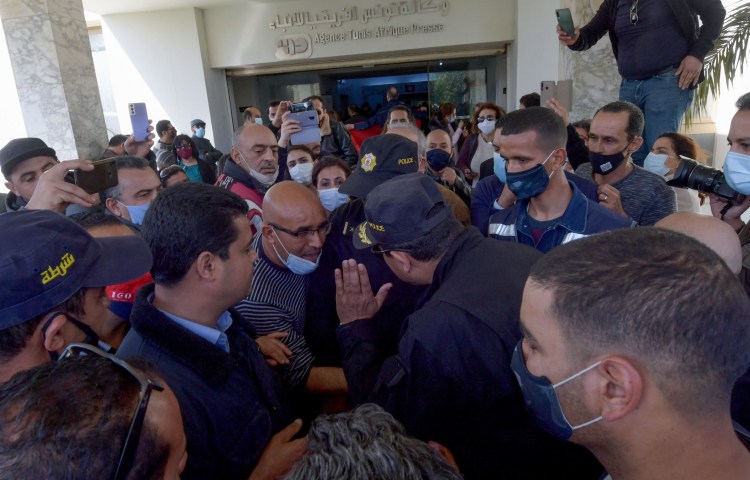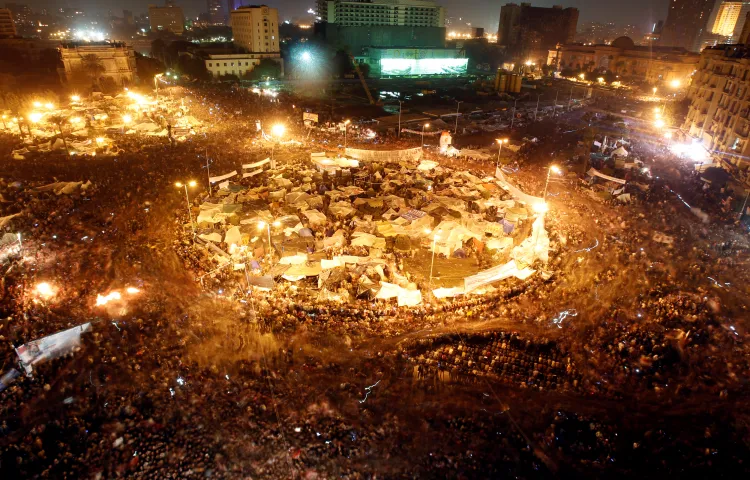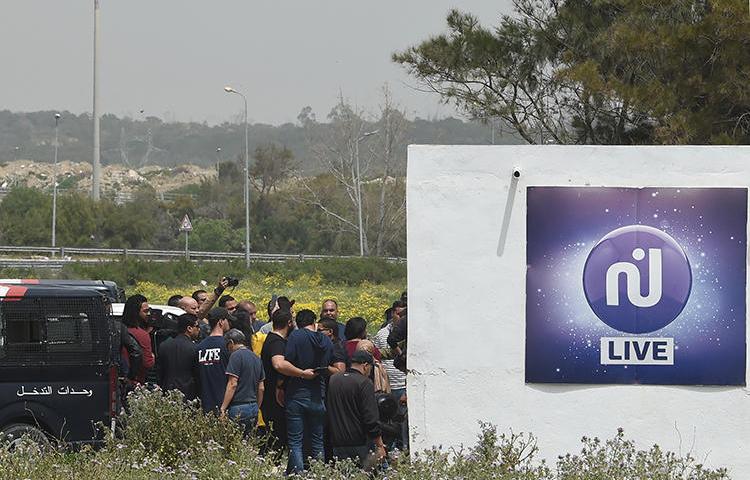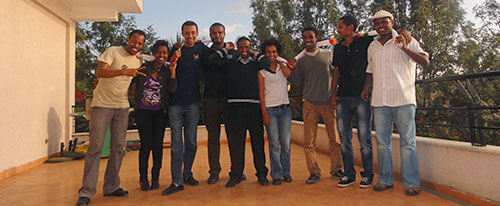
Tunisian police raid TAP news agency to enforce appointment of pro-government director
New York, April 14, 2021 — Tunisian authorities should respect the independence of the state news agency Tunis Afrique Presse (TAP), and refrain from using security forces to interfere in the agency’s personnel issues, the Committee to Protect Journalists said today. Yesterday, police officers forcibly entered TAP’s headquarters in Tunis, the capital, to break up…

Ten years after the Arab Spring, the region’s media faces grave threats. Here are the top press freedom trends
In early February 2011, Alaa Abdelfattah was in Egypt’s Tahrir Square, documenting and participating in the nascent pro-democracy uprising that would topple the government and transform the country and the region. Today, he is in prison on anti-state and false news charges, which his family believes are partly retaliatory for his work. Abdelfattah is one of…

Upcoming elections could make or break Tunisia’s fledgling free press
Tunisia’s progression to a freer society took center stage this month, as journalists, digital rights activists, and tech companies gathered in Tunis for RightsCon and the IFJ congress. Tunisia has secured greater press freedom than many of the Arab Spring countries, but local journalists told CPJ that with elections slated for this year, challenges including…

Tunisian media regulator shuts down Nessma TV, citing regulatory violation
On April 25, 2019, Tunisian police raided the studios of privately owned television broadcaster Nessma TV and confiscated its broadcasting equipment following a ruling by the High Independent Authority of Audiovisual Communication, the country’s media regulator, stating that the broadcaster did not have proper legal status, according to Reuters and local news reports.
Tunisian police beat reporter, seize his equipment at protest
Tunisian police beat Hamdi al-Souissi, a reporter for the local radio station Diwan FM, seized Souissi’s recording equipment, detained him, and questioned him for two hours at a precinct in in the country’s eastern city of Sfax, on September 18, 2017, local media reported.

Tunisian security forces interrogate news website cofounder
Officers from the Tunisian National Guard’s Central Investigation Brigade interrogated Sami Ben Gharbia, the cofounder of the independent news website Nawaat, for six hours on May 3, 2017, demanding that he reveal the sources of an April 24 article about a draft economic and financial reconciliation law, Ben Gharbia told the Committee to Protect Journalists.…
From High Profile to Exile
Heba Alshibani did not set out to become a journalist. She had expected to become an academic, as many members of her Libyan family had before the February 2011 uprising that led to the overthrow of Muammar Qaddafi. But when the violence did not abate after Qaddafi’s overthrow, Alshibani witnessed events that she felt compelled…
News website Inkyfada hit with cyberattack after Panama Papers report
The independent Tunisian news website Inkyfada was hit with a cyberattack on April 4, 2016, hours after publishing a Panama Papers report that mentioned Tunisian politician Mohsen Marzouk, according to statements published by Inkyfada on its Facebook page. During the attack Inkyfada’s website was hacked and its content manipulated, with hackers attempting to publish names…
We need a free press to succeed, Tunisia’s leaders tell CPJ
Prime Minister vows to protect journalists Tunis, October 28, 2015–Tunisia’s senior leadership vowed in meetings with the Committee to Protect Journalists in Tunis on Wednesday to uphold press freedom as the country transitions to democracy, and to protect journalists assaulted by security forces or threatened by extremists.
